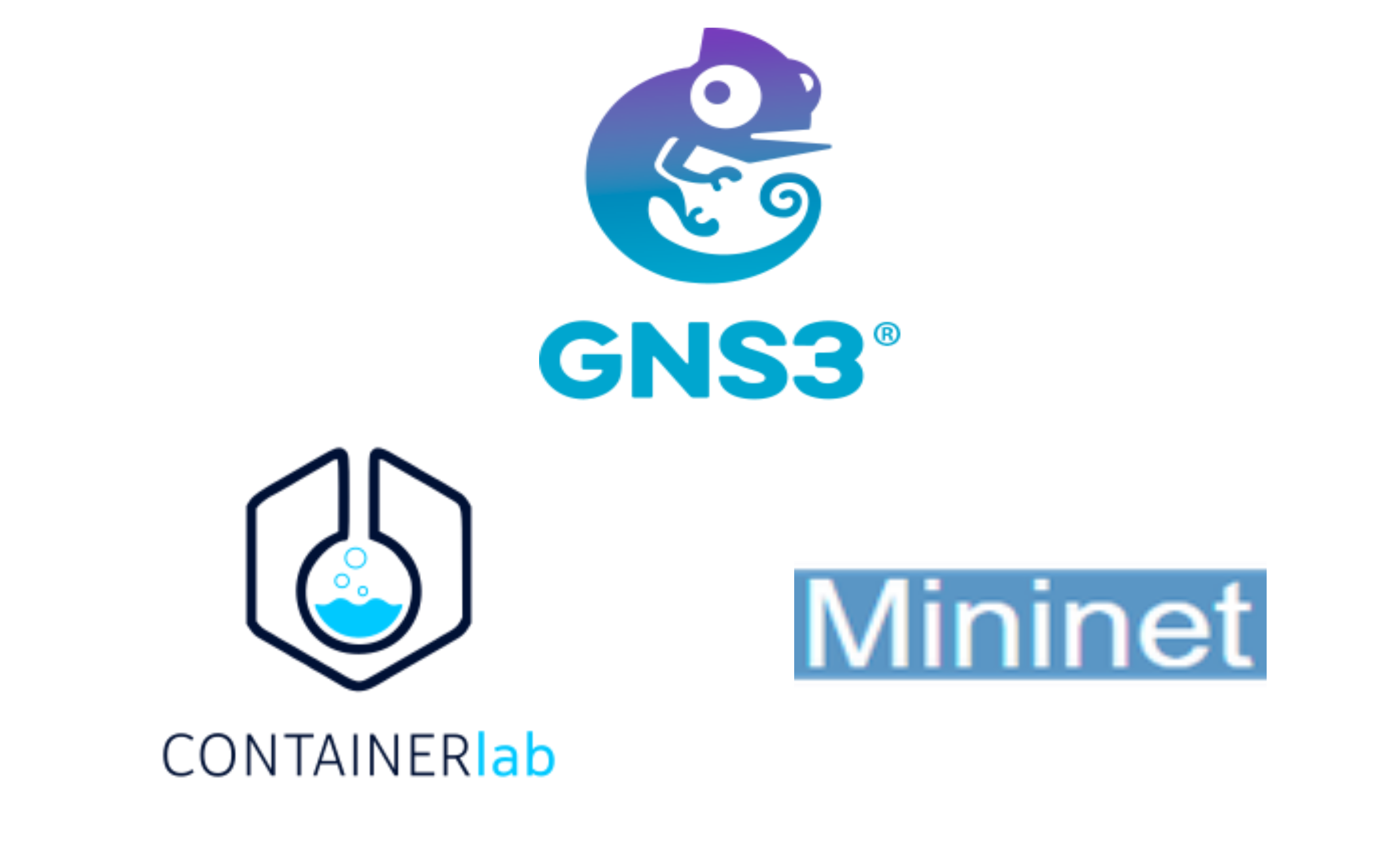Some of the shiniest Network Emulation tools out there.

Tags:
mininet containerlab gns3Description:
Comparison of several famous network emulators and simulators from my experience.
Overall: Network Simulators vs Emulators.
Cisco Packet Tracer, GNS3, Mininet, and Containerlab are all network simulation and emulation tools that are commonly used by network engineers and students to design, test, and troubleshoot network topologies.
Among them, Packet Tracer is the only network simulation tool, while the rest are categorized as network emulators. The difference is that a simulator is designed to mimic the behaviors and variables of the software of an actual system within the simulator's environment. In contrast, an emulator also tries to mimic all of the software and hardware features of the system within the system's own environment, then link these environment together as if they are linked in the real production systems.
Overall, Simulators are more simple and more suitable for education purposes, while Emulator is more suitable for the deployment and testing of production systems.
Cisco Packet Tracer:
Being a Cisco-propietary network simulator, it is widely used by students to learn networking concepts, especially those related to Cisco's devices. It provides a graphical user interface (GUI) that allows users to design and simulate networks consisting of Cisco devices. Packet Tracer is a great tool for learning network design and configuration for Cisco devices, but it has limited support for deep hard-ware related features of those devices, as well as non-Cisco ones.
GNS3 (Graphical Network Simulator 3):
Although named Network Simulator, GNS3 is actually a network emulator, which allows users to run real network operating systems (OS) such as Cisco IOS, Juniper Junos, and others on a virtual environment. GNS3 supports a wide range of devices and provides a more realistic network emulation environment compared to Packet Tracer. It is widely used by network engineers for testing and troubleshooting complex network topologies. Compared to other Emulation tools, the biggest advantage of GNS3 lies in its name "Graphical". GNS3's GUI is very intuitive and easy to use compared to other emulation tools.
Mininet:
Mininet is an open-source network emulator that allows users to create a virtual network within Linux environments. Mininet hosts run standard Linux network software, and its switches support OpenFlow for flexible custom routing and Software-Defined Networking (SDN). It is commonly used by network engineers and researchers to test and prototype network applications and protocols. Mininet is customizable, and its performance is dependent on the underlying hardware resources.
Containerlab:
Containerlab is a newer network emulation tool that is designed to create container-based network topologies. It uses Docker containers to simulate network devices, and it provides a simple YAML-based syntax to define network topologies. Containerlab is flexible and easy to use, and it has gained popularity among network engineers and DevOps teams.
The ultimate weapon: Containernet.
Containernet is a fork of the famous Mininet but ulitizing the idea of Containerlab. It allow the usage of Docker containers as hosts in emulated network topologies. This is suitable for both the senior engineers that prefer Mininets for its complex and comprehensive functions, as well as the engineers that prefer Containerlab for its flexibility.
